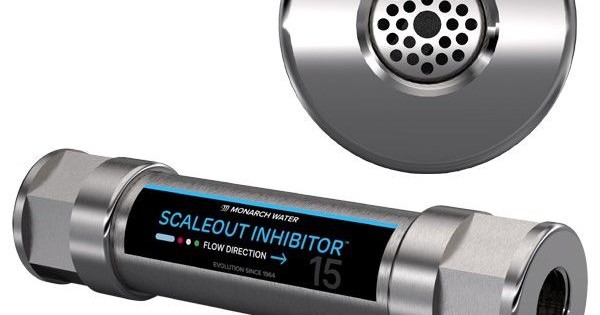D
Deleted member 294929
I was talking hypothetically
What exactly is under your sink?

OK then, it will neither remove the rubbish, nor the goodness.I was talking hypothetically
My Sage pod machine reminds me every 6 months to carry out a descale. It gives about a 30 pod warning in advance and if I don’t carry out a descale programme before the time is up, it shuts down. Yes, I could cheat and go through the process without putting any descaler in but what would be the point - would you turn off and ignore the 'oil change due' warning light in your car?Limescale can ruin coffee machines and Bod lives in a hard water region.
Potentially toxic “forever chemicals” have been detected in the drinking water sources at 17 of 18 England’s water companies, with 11,853 samples testing positive, something experts say they are “extremely alarmed” by.
The DWI categorises PFOS and PFOA contamination risk in three tiers, with tier 3, equal to or more than 100 nanograms a litre, being high risk and the point at which action must be taken to dilute the PFAS or remove the water source from public supplies. PFOS was found in raw untreated water at 18 times the tier 3 100ng/l limit for drinking water. PFOA was detected at 1.5 times the limit.
Affinity Water appears to have the biggest PFAS problem, with 73 raw water samples above the maximum DWI limits at five sites, followed by Anglian Water with 22 raw samples above the limit from two groundwater sources, according to a DWI report. Southern Water found two samples at or above the top limit in its treated water.
The RSC is pushing for a tenfold reduction of the limit for individual PFAS types – from 100ng/l to 10ng/l – as well as an overall limit of 100ng/l for the total amount of PFAS. It would bring the UK closer to the EU and Scotland, which have a stricter limit of 100 ng/l for the sum of 20 specific PFAS in treated water. Some countries have stricter limits, with Denmark’s set at just 2ng/l for four individual PFAS, and the US Environmental Protection Agency has proposed dropping limits on some to just 4ng/l.
The Department for Environment Food and Rural Affairs, the Environment Agency and the DWI declined to comment.
Affinity Water did not respond to requests for comment.
GreenisGood@the Grunadia
Better buy that filter soon before your water gets too chewy to swallow.
Boiling water will kill bugs whenever you make a hot drink anyways. What's the prob.?
Potentially toxic “forever chemicals”
We're tough oop north.Plus, all of Bod's "minerally goodness"
Boiling water can 'burn' ground coffee. For that reason, coffee machines - pod or bean-to-cup never boil the water.Boiling water will kill bugs whenever you make a hot drink anyways. What's the prob.?
Have a look at your bottle of Evian. Nowhere on the bottle will it say "drinking water".
It is possible that it can say that. But if it does say "drinking water" that means that it is tap water.Does any bottle of Mineral water say that?

A filtered water system is cost-effective and eco-friendly compared to bottled water. It improves taste by removing chlorine and contaminants while still retaining essential minerals.I've asked this on CC. I'm looking ar fitting a filtered water system in my house. Fitted plenty but don't know are they really worth it.
Filtered against tap: good and bad from. What I read.
For the environment: yes
Evian and Pellegrino bottled have lots of nutrients that filtered water won't give.
But taste is good and cheaper with a filtered tap.
What do you know. ?
